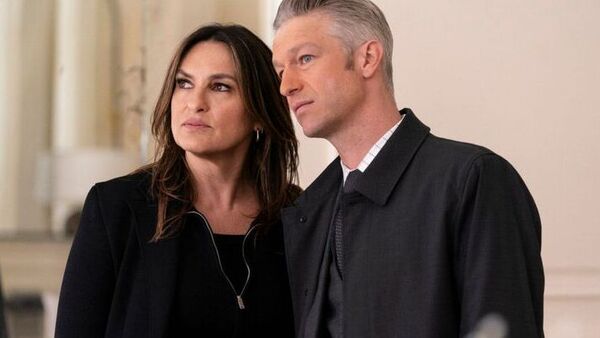
The Anchor Holds: Mariska Hargitay and the Enduring Power of Olivia Benson in SVU Season 27
The familiar dun-dun sound still echoes, albeit perhaps a little more subtly, after all these years. It’s a testament to the enduring power of “Law & Order: Special Victims Unit” that it continues its run, entering its fictional 27th season (md07, if we’re tracking internal episode codes). And at the heart of that longevity, the unwavering constant, is Mariska Hargitay as Olivia Benson. Her return isn’t just a continuation of a character; it’s a reassurance, a beacon in the often turbulent sea of television, and a vital exploration of trauma, resilience, and the ever-evolving landscape of justice.
To understand the impact of Hargitay’s return, one must acknowledge the weight she carries. Olivia Benson isn’t just a detective; she’s a symbol. She’s a survivor, a fighter for the voiceless, and a surrogate for countless viewers who have found solace and strength in her unwavering commitment to victims of sexual assault. Each season has chipped away at her, exposing vulnerabilities and testing her resolve. She’s grappled with her own trauma, faced betrayals from within, and navigated the complex bureaucracy that often hinders justice. Therefore, her reappearance in Season 27 isn’t just a plot point; it’s a reaffirmation of her commitment, a promise that even after decades, she’s still standing, still fighting.
Imagine Season 27 opening with Benson, perhaps bearing the subtle signs of time, both physically and emotionally. The lines around her eyes might be a little deeper, the silver in her hair a little more prominent. But her gaze, that unwavering, empathetic gaze, remains. We see her mentor a new generation of detectives, facing the same moral dilemmas she faced in her early years, now guiding them with the wisdom earned through years of witnessing the best and worst of humanity. The episodes might tackle contemporary issues: the evolving definition of consent in the digital age, the challenges of prosecuting online exploitation, the long-term impact of historical trauma on communities. And through it all, Benson is there, not just investigating the crimes but understanding the nuances of the victims’ experiences, offering them a voice and a path towards healing.
Hargitay’s brilliance lies in her ability to portray Benson not as a superhero immune to pain, but as a human being constantly grappling with the darkness she encounters. Season 27 could explore the emotional toll of her years on the force, perhaps delving deeper into her struggles with PTSD or the challenge of balancing her personal life with the demands of her career. Seeing Benson struggle, confronting her own vulnerabilities, only makes her strength more compelling. It reminds viewers that even those who dedicate their lives to fighting injustice are not immune to the effects of the world they inhabit.
Furthermore, her return allows for the exploration of institutional change. Perhaps Benson, now in a position of greater authority, actively seeks to reform the SVU, implementing new protocols and training programs designed to prevent future abuse and ensure a more empathetic and effective approach to investigations. This isn’t just about solving individual cases; it’s about creating a lasting legacy of justice, a system that protects the vulnerable and holds perpetrators accountable.
The enduring appeal of Olivia Benson, and by extension, of “Law & Order: SVU,” lies in its ability to tap into our collective desire for justice and empathy. In a world often defined by cynicism and despair, Benson offers a glimmer of hope. Her return in Season 27, even in this hypothetical future, signifies that even after all these years, the fight for justice continues. It reminds us that even amidst the darkness, there are individuals like Olivia Benson who dedicate their lives to shining a light, to offering solace, and to ensuring that every victim has a voice. And as long as Mariska Hargitay continues to embody that spirit, the dun-dun will continue to resonate, a testament to the enduring power of hope in the face of unspeakable evil.
